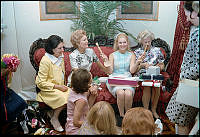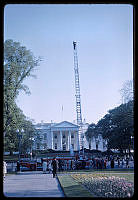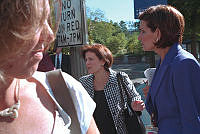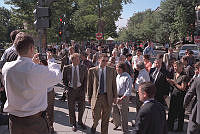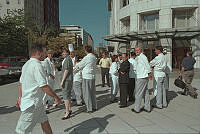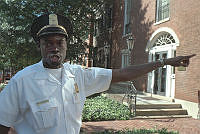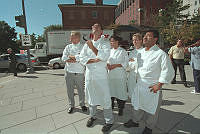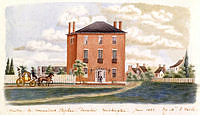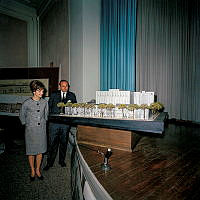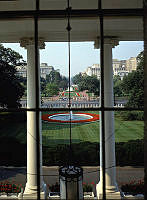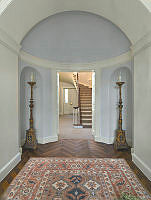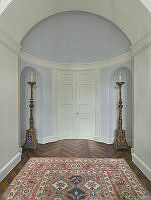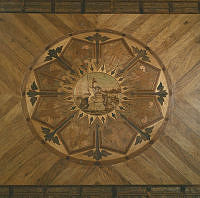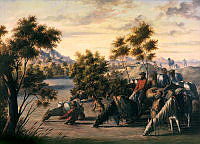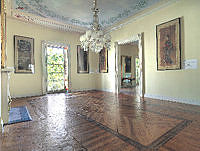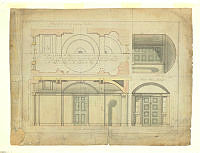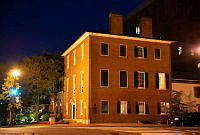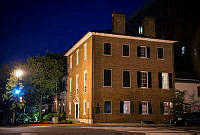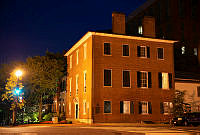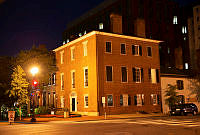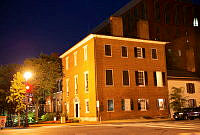The Center for Digital Research in the Humanities at the University of Nebraska-Lincoln “Civil War Washington” website has posted the 1862 Emancipation Petitions, providing widespread access to these primary documents. To meet the requirements of the D.C. Compensated Emancipation Act of 1862, slave owners filed a petition with the District government that stated their loyalty to the Union, listed the number and value of their enslaved persons, described their slaves’ physical characteristics, and, most importantly, recorded their slaves’ occupational skills.
A petition filed in 1862 by Augusta McBlair, a descendant of Provey Gadsby and noted hotelier John Gadsby, offers additional evidence for the history of enslaved persons at the Decatur House. This petition included Nancy Syphax, aged 53, who was listed as a “good nurse, house servant & laundress & is worth $800.” The petition also described Henry King, aged 53, as “a good carpenter, brick layer & general mechanic & first-class waiter & market man,” who was “valued at $1000.” Undoubtedly, the McBlair family hired out their slaves, a common practice in the city at this time. Many of the enslaved people noted in the McBlair Petition had once been housed in the slave quarters at Decatur House. John and Provey Gadsby owned and resided at Decatur House from 1836 to 1844. After John Gadsby’s death, Mrs. Gadsby or her heirs rented the property until it was purchased by Edward Beale in 1872.
It is not presently known if the Gadsby heirs received the amounts recorded in the petition, nonetheless the document provides remarkable insight into the appearance and the lives of enslaved people. Ongoing research by the White House Historical Association and the creation of interpretative materials for the public and future educational programs for K-12 students will help to uncover additional details about the daily lives of enslaved people at Decatur House.














